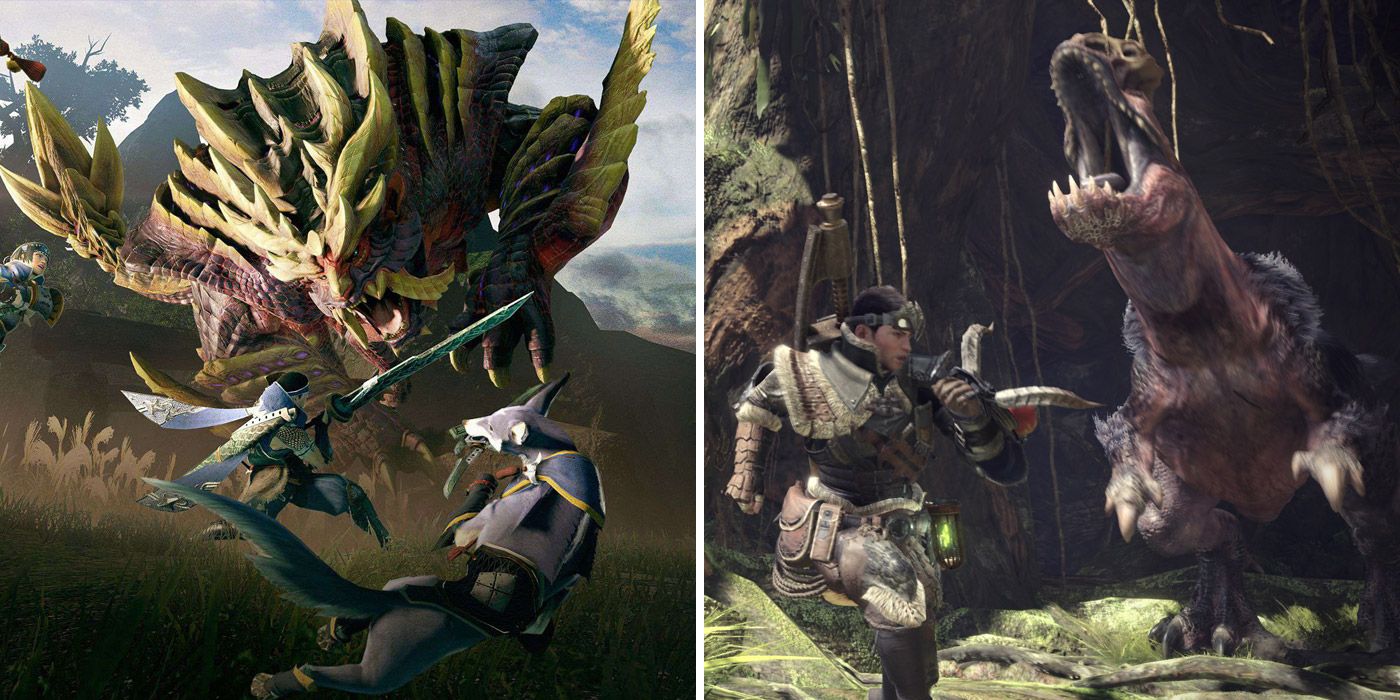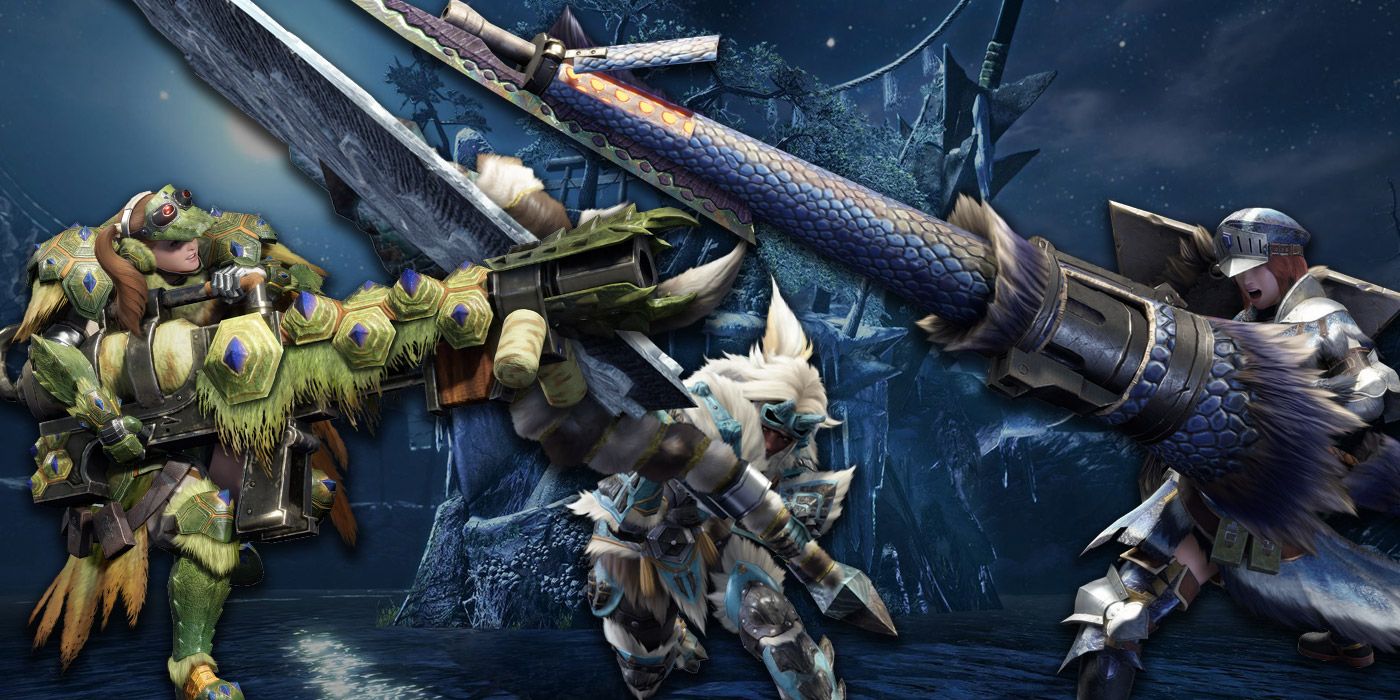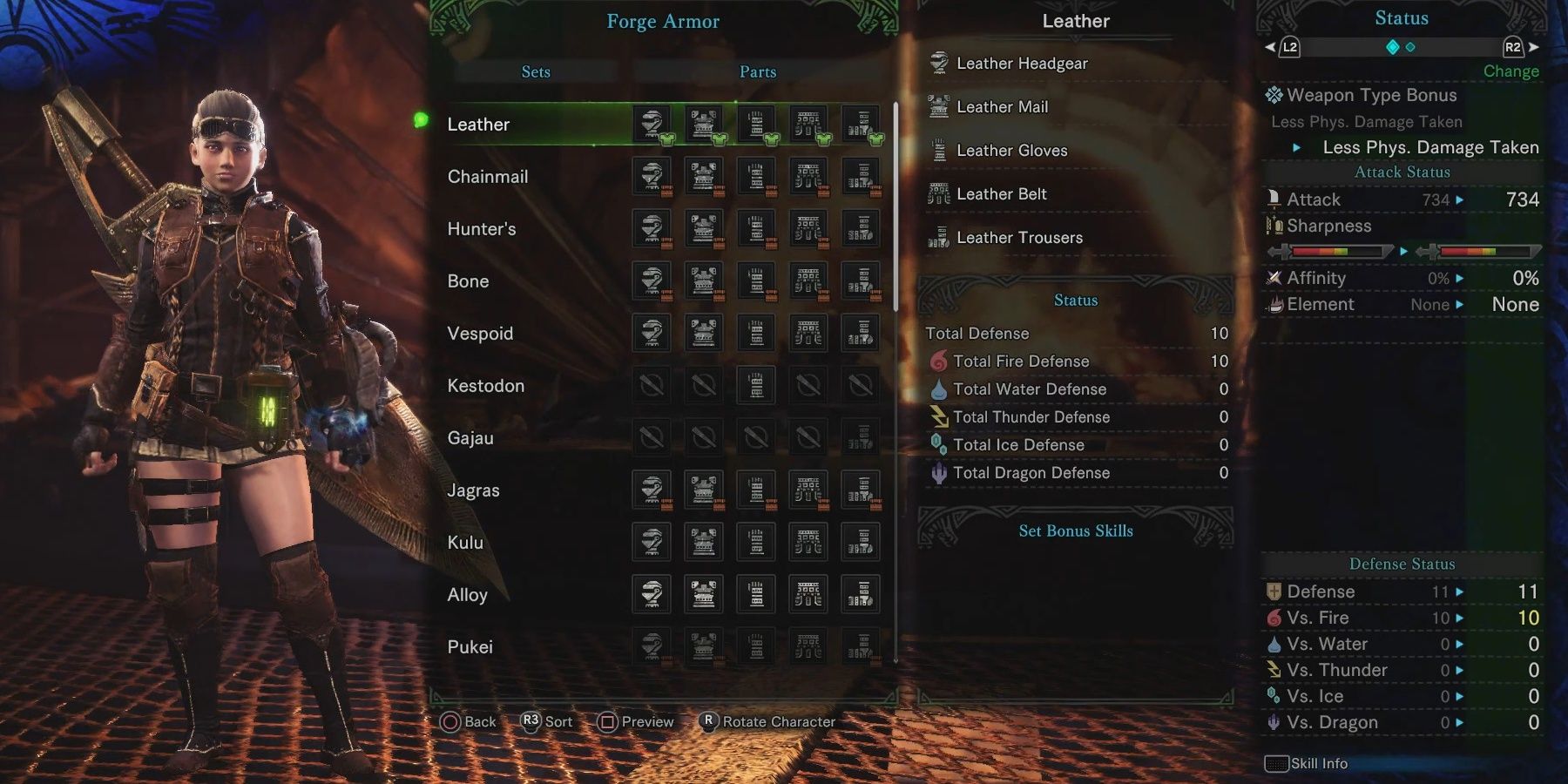Monster Hunter has long been a major game franchise, each new entry hotly anticipated by eager fans. It wasn't until 2017's Monster Hunter World, though, that the series breached its cultural barriers and entered into the Western games market as a surprise smash hit. Monster Hunter World was the first Monster Hunter title on full consoles rather than portables, and it made just enough concessions to audiences in the US and Europe while still maintaining its grindy Japanese idiosyncrasies. It is a great game, but the upcoming Switch game Monster Hunter Rise will need to perform a careful balancing act to live up to the reputation of both the series as a whole, and its uniquely popular direct predecessor.
Because Monster Hunter Rise will once again bring the franchise to a portable console, some suspect that it may slide back to some of the older roots of the series. As many have found, though, just because a player loved Monster Hunter World doesn't mean they will like older Monster Hunter titles. It may simply be too late for Capcom to roll back and appease long-time diehard fans. A newer, much larger audience has been drawn in by the streamlining and quality of life changes present in World, and those fans are likely to dictate the direction of future games. If that's the case, Monster Hunter Rise could, and likely should, go even further in taking the best parts of World and moving forward into a more accessible future.
Combat in Monster Hunter Rise
One of the most defining differences between Monster Hunter World and previous titles was how smooth and streamlined its combat was. It may have lacked the depth of other Monster Hunter games, but the fact that it was on consoles allowed World's combat to feel dynamic and fluid. Past titles on platforms like the 3DS were clunky by nature of the systems they were on and the technology at hand, but Rise has an opportunity to mesh the best of both worlds. The Switch has controls that are conducive to smoother, crisper combat than previous portables, and still comes in a compact form factor.
Especially with the Switch's smaller screen and more compact controls, it might even behoove Rise's developers to make combat even simpler, if no less difficult. From what's been seen in Monster Hunter Rise demos so far, things look good for the moment-to-moment fighting action. However, another big aspect of the hunts in World was that each zone was open, completely free of loading gates. This meant that hunts could freely spill out into different areas, and dynamically change with the addition of new environments and even other monsters. That may be harder to pull off on the Switch, but it's key to what made World so good.
Quality of Life in Monster Hunter Rise
The other differences in Monster Hunter World weren't nearly as noticeable as the overhauled combat, but they added up to make the game feel like a totally separate experience from its predecessors. All of the minor quality of life changes that went into Monster Hunter World were insignificant on their own, but as a whole they were the only thing that kept the game palatable for a larger audience. Easy menus for multiplayer, weapon tutorials, switching weapons and equipment mid-hunt, fast-travel, easier weapon sharpening, scout flies to point out objectives and help navigate, and so many more aspects of Monster Hunter World might be taken for granted, but actually resolved major annoyances from previous Monster Hunter games.
All of that said, it's remarkable how many minor annoyances and issues remain in Monster Hunter World. If anything, Monster Hunter Rise should go even further in improving quality of life in the new title. As a portable game, many players might expect a more pared-down, simpler adaptation of the Monster Hunter World blueprint, but it's unclear if that's what they will get. Part of Monster Hunter's charm is its complexity- cooking, crafting, utility items, and many other mechanics have complexities and oddities that add to the game's identity, but there are surely ways to keep that inherent charm that are friendlier to newer and more casual players.
Of course, the biggest identity crisis that Monster Hunter will face with Rise and in the future is the issue of difficulty and grinding. Monster Hunter World was less difficult and less grind-oriented than previous titles, but some of its fights were so punishing that it necessitated many hours of grinding before even approaching certain monsters in the late game. That amount of grinding isn't familiar to Western audiences, heavy even for players of notoriously grindy titles like Destiny, The Division, or Warframe. How Monster Hunter will continue to reconcile its core roots with trying to appeal to broader audiences remains to be seen, but Monster Hunter Rise may provide answers when it releases this March.
Monster Hunter Rise is set to release on March 26, 2021 for Switch.



